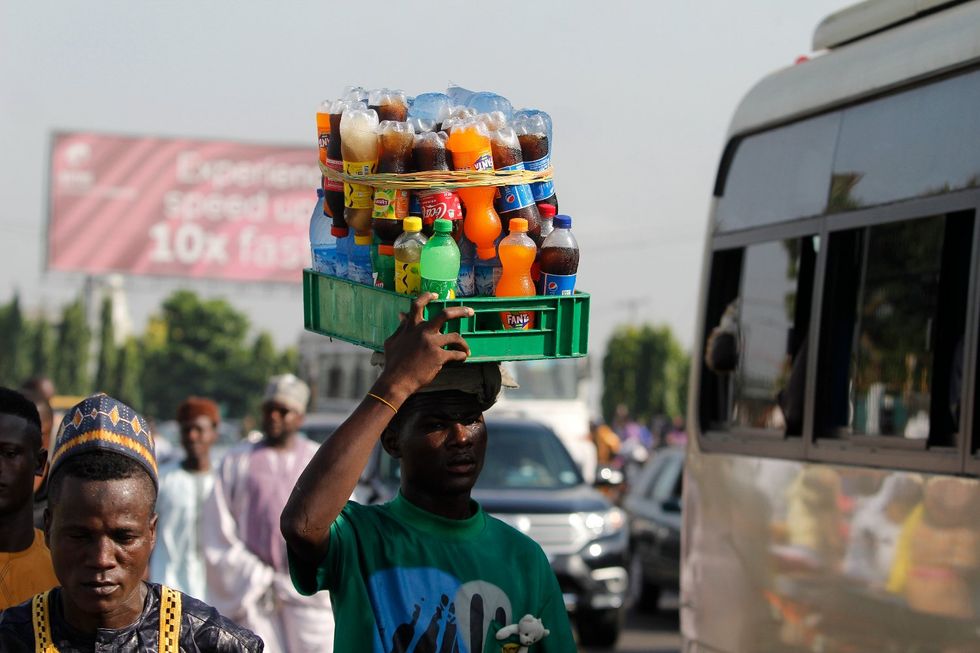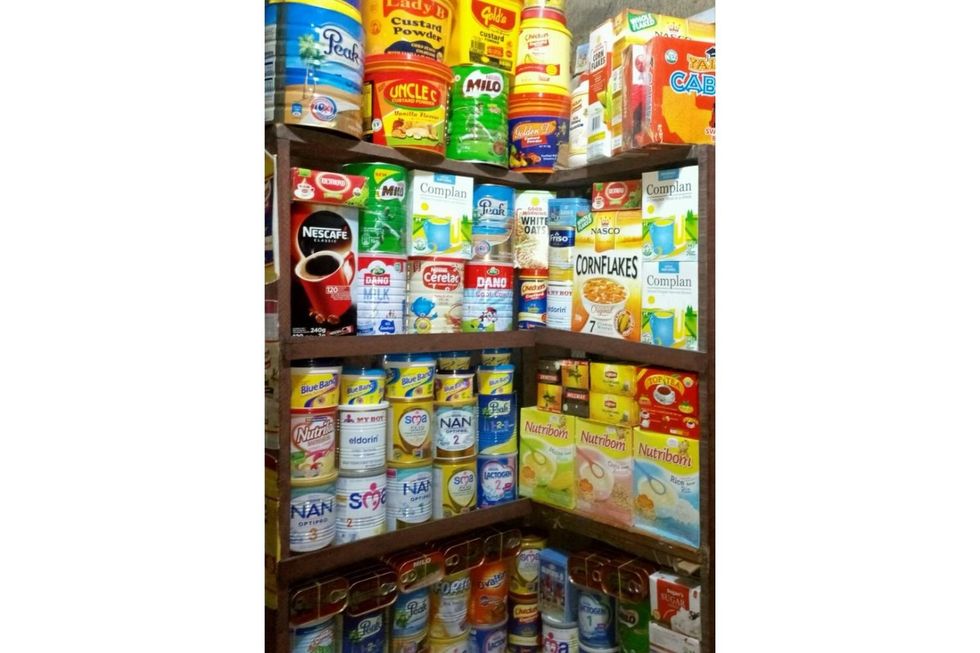What It’s Like To…Be a “Nwa Boy”
The Nollywood movie Áfàméfùnà brings the story of Nigeria’s Igbo apprenticeship system to the big screen. A former apprentice — nwa boy— shares what it’s really like.

A photo of two “nwa boys” in the Nollywood movie “Áfàméfùnà: An Nwa-Boi Story.” A real nwa boy speaks to OkayAfrica about what it’s really like being one.
Afamefuna tells the story of a man with the titular name, taken into police custody after the death of an old friend with whom he had spent a sizeable chunk of his life in the Igbo apprenticeship system, serving under the same master, Odogwu, played by Kanayo O. Kanayo. Directed by Kayode Kasum and starring Stan Nze, Alexx Ekubo, and Segun Arinze, Afamefuna was released to cinemas in December 2023 and is currently streaming on Netflix.
Odogwu, a successful Igbo businessman, takes young boys under his wings and teaches them the ways of Lagos life and business. He is a kind, firm, and generous man who prides himself on the success of his business and looks after his nwa boys — so-called apprentices who have arrived from the village to learn his construction trade. Under his guidance, wide-eyed, naive boys blossom into brilliant, street-savvy young men. Nze plays the titular character of Afamefuna, one of Kanayo’s most exemplary apprentices. He is honest and loyal to a fault. In the end, Afamefuna reaps the reward of his diligence and integrity when he is “settled” by his boss. That is, released from his apprenticeship, given his master’s blessings (and monetary compensation), which he uses to set up his own business.
Amongst other things, Afamefuna is a story of Igbo apprenticeship, entrepreneurship, love, and brotherhood. To learn more about the Igbo apprenticeship system and the lived experiences of an apprentice, OkayAfrica reached out to Wetalu David, who requested that their name be changed to protect their identity, a former nwa boy who worked in his boss’ shop for almost nine years and now runs his own business in Lagos. David details how he started, his experience in the Igbo apprenticeship system, and what it was like to be an nwa boy.
Wetalu David shares his story with OkayAfrica, in segments edited for length and clarity, below.
Wetalu David: I started selling pure water (sachet water) when I was 13 year-old in Imo state [Southeast Nigeria], where I’m from. At 16, I started to sell soft drinks and gala (sausage rolls). I finished secondary school in 2010. I was 20 at the time. I wasn’t satisfied with where I was, so I gave myself a good talking to, and considered my options. I couldn’t live in my father’s house forever. I couldn’t sell pure water and drinks forever – that wasn’t how I was going to succeed. I wanted to do more for myself. My mum also advised me to explore further. Soon after that, I decided to go to Lagos, to be a nwa boy. My aunt took me to the bus park in Aba and my oga (boss) picked me up from the park in Lagos.

A photo of a man hawking drinks in Lagos, Nigeria.
Photo by Adekunle Ajayi/NurPhoto via Getty Images.
The initial agreement was that I would serve him for 6 years, with the first year being probationary – and then he would settle me. I served my oga in his grocery shop for almost nine years – 8 years and 7 months exactly. It wasn’t easy. There was a ton of maltreatment involved. He insulted us all the time. From month to month, we had no salary, nothing at hand. We worked in the shop all day. He fed us, but barely. We didn’t have clothes either; we only wore the old clothes he handed down to us. You’d fall sick, he’d give you pennies to go and buy the cheapest drugs, and he’d still use the drugs alongside you – that’s how miserly he was. Oftentimes, I regretted coming to Lagos. But now I don’t dwell on it. Everything is a lesson, and a stepping stone. If I had not experienced all that, I wouldn’t be where I am today. If I had remained in the village in my father’s house, I wouldn’t be running my own business today.
After about nine years, my boss settled me. From 2010 when I joined him till date, over 20 nwa boys have come and gone from my boss’ shop. And out of them, he has only settled three boys. Two before I came, and then me. He didn’t settle me well. I felt really bad and since then, I’ve struggled. But I’m still grateful for the experience. As a man, you have to figure things out for yourself. You can only depend on God. You can’t depend on other people, even though when I first came to Lagos fresh from the village, my boss was all I had. My parents did not have anything. He was all I and the other nwa boys had.
I’ve started my own business now, also in Lagos. I sell groceries, which was also my boss’ business. I also have my nwa boy now. In four or five years, I’ll settle him and bring in someone else, and he too will go on to start his business. That’s how it’s done.

Wetalu David served his boss for almost 9 years before setting up his own shop after his “settlement.”
Photo by Wetalu David.
I’m in the same plaza with my boss – I’m not far from his shop. I visit him sometimes. I don’t hold onto the things I experienced. I see it as a challenge.
My boss wanted me to go someplace else, someplace far from him, but I couldn’t. Rent was far more expensive where he wanted me to go, and rent is far cheaper here where I am. Some bosses settle you on that sort of condition. “Your business must not be in close proximity to my business.” Or, “You must not operate the same kind of business as mine.” That’s just how some of them decide, there’s nothing you can do about it. It’s the way it is.
Some of the nwa boys who have come and gone from my boss’ shop over the years were sometimes caught stealing. I think they stole because we had it so bad, and our boss didn’t care for our well being at all. Sometimes, if it was a notably large amount, our boss would have them arrested. Other times, he would report them to their parents back home, and the problem would be settled in the village. But they would not work for him anymore, no matter how many years they’d dedicated to serving him before they stole. We knew of bosses who gave second chances to their nwa boys who misbehaved, but our oga never gave second chances.
The Igbo apprenticeship system has certainly been useful to many people, and has elevated the lives of many. Your experience really depends on the kind of boss you work for. In that regard, some people are luckier than others. I see my experience, even though it wasn’t rosy, as a good thing. Better nine years learning the ropes and finally starting a business for myself, than nine years spent under my father’s house selling water. My boss may not have been the best, and he may not have settled me well, but I’m still grateful for everything. I’m only going higher from here.

